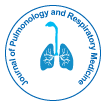Unsere Gruppe organisiert über 3000 globale Konferenzreihen Jährliche Veranstaltungen in den USA, Europa und anderen Ländern. Asien mit Unterstützung von 1000 weiteren wissenschaftlichen Gesellschaften und veröffentlicht über 700 Open Access Zeitschriften, die über 50.000 bedeutende Persönlichkeiten und renommierte Wissenschaftler als Redaktionsmitglieder enthalten.
Open-Access-Zeitschriften gewinnen mehr Leser und Zitierungen
700 Zeitschriften und 15.000.000 Leser Jede Zeitschrift erhält mehr als 25.000 Leser
Indiziert in
- ICMJE
Nützliche Links
Open-Access-Zeitschriften
Teile diese Seite
Abstrakt
Cytokine Storm Goes Hand In Hand with Prolonged Fever in SARS COVID ? 19
Vijay Bakhtar*
Background: Clinical intervention in patients with SARS has demonstrated upregulation of cytokine production in patients with prolonged fever. Such an association between fever & cytokine storm is studied in the present research which is an hospital-based case-control study of COVID-19 patients. To the best of our knowledge, the present study is the first study on Indian population which highlights the link between prolonged fever, lymphocyte count and cytokine profile in patients with COVID-19 disease. Methods: We conducted a hospital-based case–control study of patients admitted for COVID-19 with prolonged fever and short duration of fever with a positive SARS-CoV-2 reverse transcriptase polymerase chain reaction (RTPCR). All the patients underwent investigations which includes chest X-ray (CXR), Complete Blood Count (CBC), Renal and liver panel, C- reactive protein (CRP), lactate dehydrogenase (LDH), Interleukin -6 (IL-6) and Ferritin, as a part of their COVID-19 protocol clinical laboratory findings at regular intervals till discharge. Conclusion: The study reported that prolonged fever i.e., fever > 7 days from beginning of illness was associated with increased risk of cytokine storm from COVID-19 than patients with short duration of fever. There was also a marked reduction in lymphocyte count with increased levels of inflammatory markers and fever which is again considered an indicator of poor prognosis. The study concludes that prolonged fever should be considered as one of the earliest markers for predisposing the patient to the cytokine storm. These early signs if diagnosed correctly right at the inception of complications the further progression of cytokine storm could be avoided, which can minimize the mortality and foster the chances of patient’s recovery from this deadly disease.
Zeitschriften nach Themen
- Allgemeine Wissenschaft
- Biochemie
- Chemie
- Genetik und Molekularbiologie
- Geologie und Geowissenschaften
- Immunologie und Mikrobiologie
- Klinische Wissenschaften
- Krankenpflege und Gesundheitsfürsorge
- Landwirtschaft und Aquakultur
- Lebensmittel & Ernährung
- Maschinenbau
- Materialwissenschaften
- Medizinische Wissenschaften
- Pharmazeutische Wissenschaften
- Physik
- Sozial- und Politikwissenschaften
- Umweltwissenschaften
- Veterinärwissenschaften
Klinische und medizinische Fachzeitschriften
- Anästhesiologie
- Augenheilkunde
- Betrieb
- Dermatologie
- Diabetes und Endokrinologie
- Gastroenterologie
- Genetik
- Gesundheitspflege
- Immunologie
- Infektionskrankheiten
- Kardiologie
- Klinische Forschung
- Medizin
- Mikrobiologie
- Molekularbiologie
- Neurologie
- Onkologie
- Pädiatrie
- Pathologie
- Pflege
- Toxikologie
- Zahnheilkunde

 English
English  Spanish
Spanish  Chinese
Chinese  Russian
Russian  French
French  Japanese
Japanese  Portuguese
Portuguese  Hindi
Hindi